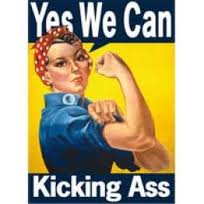
I’m writing this out of pure sloth…
Over the first six years of my writing career, I’ve developed a killer template for query letters that works well for myself and dozens of writers I’ve coached or spoken in front of. Other speakers and teachers have referenced it, and it’s been featured in Joanna Penn’s podcast and at conferences in multiple countries.
I’ve typed it out for so many people, so many times, my withered and arthritic fingers begged me to write it down here. One time. So I can send folks to this page instead of repeating it time and time again.
So…here it is.
The Four-Para Magic Query Letter
You want to open with the name of the person most likely to read it. I’ve found about 20% of agents and editors skip this and don’t care…but the other 80% are looking for reasons to not read the rest of your letter. They get 100+ a day. “They couldn’t be bothered to find out my name” is a common reason.
So get the damn name. Open with something standard like “Dear Firstname”, “Hello Ms. Lastname”, or “Greetings Full Name.” Once you start with that basic, it’s time to move on to the Four Paragraphs. We’ll deal first with the Big Three:
- “You’re Awesome!”
- “I Have This Awesome Idea!”
- “I Am Also Awesome!”
Here’s how they work.
Para 1: “You’re Awesome!”
Hard to swallow truth: the folks you’re querying neither give a rat’s damn about you, nor are terribly inclined to start any time soon. They do, however, care deeply about themselves and their publication/agency/website.
So open by showing you care about them and their jobs, too. Spend 2-3 sentences describing why you want to work with them, and the accomplishments that make the recipient stand out. For example…
For a Magazine.
I’ve been a fan of True Brew magazine since 2014, when your coverage of the Portland Hops and Hatchets Festival caught my eye. More recently, I really enjoyed your article about Sascha Karoll’s work with bioengineering yeast for taste and ABV.
For an Agent.
As a parent and world-traveler, I have long enjoyed the work of your client Amanda Hopper. Her book on child safety in developing nations helped me take my kids to Southeast Asia ready to enjoy the experience with less worry.
For a Podcast
I only found out about Guys Mocking Guys a month ago, but you’ve been splitting my sides ever since. You’re in heavy rotation as I try to catch up. I know you recorded it years ago, but your “Revenge of the Lawn Gnomes” episode was one of the funniest things I’ve heard in a long time.
See how it works? You show you cared enough to find out a little about them. Don’t take too long, but demonstrate you performed both due diligence and common courtesy.
Huge bonus points if the thing you mention is directly related to the topic you’re about to pitch. Speaking of…
Para Two: “I Have This Awesome Idea!”
Here’s where you pitch your piece Keep it brief. No more than a five-sentence elevator spiel. Use bullet points for nonfiction sometimes, sentences always for fiction. Stick to the basic facts and don’t overdo it.
Your job here is to pique enough interest they’ll get back to you and start a conversation…not to tell them everything they need to know. If you do that, even if they like the idea they’re more likely to put it on the back burner and forget your name. Remember: agents and editors are crazy busy.
For a Magazine.
Next month, I’m helping to organize hospitality for the Smalltown Big Brew Festival in Anytown. I’ll have interview access to the showrunners, exhibitors, and celebrity guests. I would love to do a “behind the scenes” piece for True Brew. I’m certain your readers will enjoy and appreciate the backstage pass view to one of the country’s most successful brewing events.
For an Agent.
A frequently overlooked aspect of family travel safety is dealing with food allergies in places where you can’t necessarily read the menu. Travelling Hungry With Kids deals with that topic in 80,000 words divided between five sections:
1) Encouragement about how it’s possible to travel with food-sensitive children.
2) A checklist of preparatory questions, and how to find their answers.
3) Advice on communicating your needs to waiters, concierges, tour guides, and other local staff.
4) Emergency first aid in less developed nations, and advice on how to contact and work with first responders and hospitals.
5) A gazeteer detailing risks and needs for various tourist hot spots worldwide.
For a Podcast.
I’m currently launching my Farkas Foxtrots series: a bunch of fictional adventures starring Max Farkas and Luie Grant, two dumb but devoted best buddies who get into all kinds of humorous fun. It’s been described by Hollywood scouts as “Quentin Tarantino directs The Hangover.” I’m looking for some funny-minded guys to help me spread the word.
See how each succinctly describes what you have to offer, in a way that makes it clear why it would be interesting to the agent or editor you described in the first paragraph? That’s what you want to do.
Para 3: “I Am Also Awesome!”
In this final core paragraph, you spend a maximum of three sentences explaining how you are the only person who could possibly do the story justice. Here’s where you list your experience, qualifications, platform, and any other characteristics that make you the best writer for the job.
Brag your ass off. Tell the truth. Stick to the most salient points. But make yourself out to be a rock star. For example:
For a Magazine.
I’ve been a professional journalist for six years, and an amateur brewer for twelve. You can find my work in Sip, The Weekly Growler, and Booze and Brews. My Twitter feed @BeerBellyBob also gives a good sense of my voice and place in the brewing community.
For an Agent.
As you might have imagined, I researched the core of this book while personally travelling the world with my peanut-allergic nine-year-old. I’ve augmented that experience by interviewing professionals both before and after our family trip. Though I have no professional writing credits so far, you can get a sense for my style at my popular blog Mommy on the Road.
For a Podcast.
As for me, I’ve been writing humorous articles since 2011 with credits in Maxim, Boy’s Life, and Reader’s Digest. You can see my standup routines on YouTube, and on my Facebook feed. I’m told I give great interview, so we’re sure to produce a hilarious and popular episode together.
That’s it. Keep it quick and dirty. You can get into specific page visits and tear sheets/samples when they respond, deeply intrigued by the international writer of mystery you most clearly are.
Closing Out
As with the opening, you want this quick and dirty. Say thank you. Invite them to respond. Give your name.
And you’re done.
Para Four: The Bonus Paragraph
Okay. I’m going to let you in on a little secret. This paragraph has probably made me more money than any other part of this whole spiel. It’s a PS, and works thusly.
After your closing, do four sentences to the following basic format:
“If you like my style, but the (article above) doesn’t suit your needs right now, I have two other idea that might suit your fancy. The first deals with (short summary). The second covers (short summary). If these pique your interest, I’m happy to provide a full query with further details.”
Got it?
That’s the letter. Simple. Brief. Easy to understand. Now, go forth and do likewise.





 is, just like with any job, there are things I have to do that I really don’t want to. Sometimes those things are not just important, but urgent…and yet the call of procrastination is so strong. In a regular job, that’s what the boss is for. You see her walking around and it reminds you to get your ass to work.
is, just like with any job, there are things I have to do that I really don’t want to. Sometimes those things are not just important, but urgent…and yet the call of procrastination is so strong. In a regular job, that’s what the boss is for. You see her walking around and it reminds you to get your ass to work.